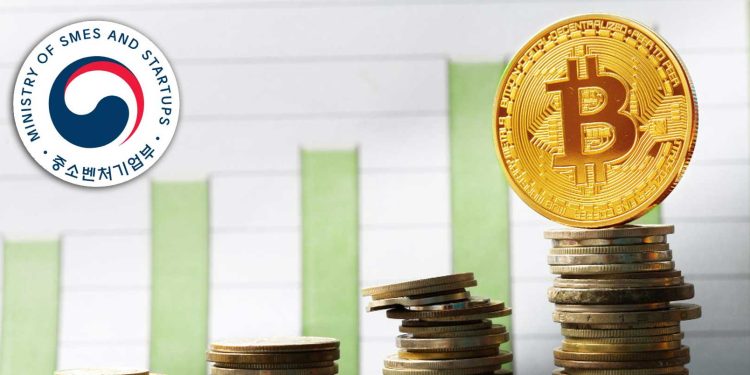A new chapter is unfolding in South Korea’s virtual asset landscape as Bitcoin, the world’s largest cryptocurrency, reaches a record-breaking high above USD 125,000. The surge marks a deeper shift in global finance, where digital assets are evolving from speculation to institutional trust. This rally arrives at a pivotal moment for South Korea, testing how far its fintech and blockchain reforms can position the nation within this accelerating financial transformation.
Bitcoin Hits Record $125K Amid Global Flight to Digital Assets
Bitcoin has surged past USD 125,000, marking a historic milestone driven by global economic uncertainty and renewed investor demand for alternative assets.
Analysts attribute the rally to expectations of U.S. Federal Reserve rate cuts, the ongoing U.S. government shutdown, and concerns about the dollar’s long-term stability — factors that have pushed both gold and digital currencies to record highs.
According to market data compiled from major exchanges including Coinbase, Bitcoin rose more than 13% in a single week, climbing from around USD 109,000 at the end of September to USD 125,750 by October 6. Market analysts say institutional investors are returning to digital assets through spot Bitcoin ETFs and custody platforms, signaling a shift in sentiment from speculation to strategic allocation.
Jeffrey Kendrick, Head of Digital Assets at Standard Chartered, was quoted in Korean media outlet Platum, saying that “Washington’s political stalemate is amplifying Bitcoin’s role as a perceived safe asset.” He projected that if current conditions persist, Bitcoin could reach USD 135,000 in the short term and potentially USD 200,000 by year-end.
Macroeconomic Instability Fuels the “Digital Gold” Narrative
The rally coincides with what market observers call “Uptober”, a recurring fourth-quarter uptrend in Bitcoin’s trading history. Since 2015, Bitcoin has posted an average 58% gain in Q4, historically outperforming all other quarters.
The current surge is also part of a broader shift across asset classes. Gold also rallied to record levels in early October, briefly touching above USD 3,900 per ounce in Asian trading, driven by central bank demand and weaker dollar sentiment, while major fiat currencies like the yen and euro weakened amid rising debt and policy uncertainty in Japan, the U.S., and Europe. This convergence of traditional and digital safe-haven demand underscores growing skepticism about fiat stability.
Analysts describe the phenomenon as a “debasement trade” — a hedge against the erosion of major currencies’ purchasing power. As central banks pursue looser monetary policy, investors are increasingly diversifying into both precious metals and digital assets.
Korea’s Policy Reform Meets Market Momentum with Bitcoin’s $125K Surge
Now for South Korea, Bitcoin’s rally arrives at a turning point in financial policy and startup regulation.
Just weeks earlier, the Ministry of SMEs and Startups (MSS) officially lifted the seven-year venture ban on virtual asset firms, allowing blockchain and crypto startups to qualify for venture business certification.
This reform aligns Korea with international norms, granting these startups access to tax incentives, financing programs, and R&D support previously restricted to other sectors. The timing now appears strategic: as global liquidity flows back into digital assets, Korea’s fintech and blockchain startups are better positioned to attract both venture capital and institutional collaboration.
In parallel, the proposed Dunamu–Naver Financial merger, valued at roughly KRW 20 trillion (USD 14.5 billion), has further blurred the line between fintech and crypto. If finalized, the potential integration of Dunamu’s blockchain infrastructure with Naver Pay’s digital finance ecosystem could create one of Asia’s most powerful digital asset platforms.
Korea’s Fintech and Blockchain Sectors Gain Global Relevance
The surge in Bitcoin’s valuation underscores how investor sentiment is accelerating the evolution of digital finance infrastructure worldwide. Korea’s fintech startups, now reinforced by regulatory clarity, could leverage this momentum to expand services in digital payments, tokenized assets, and cross-border settlements.
Industry experts note that the Virtual Asset User Protection Act, which took effect in July 2025, already provided the legal foundation for investor protection and operational transparency. Combined with venture reclassification, it establishes Korea as one of the few Asian markets with both innovation incentives and regulatory safeguards.
This dual approach — innovation with accountability — is drawing attention from global investors seeking stable markets in Asia. Korea’s growing alignment with U.S. and EU-level compliance principles may help attract foreign capital that previously avoided Korea’s more restrictive regulatory environment.
Korea’s Digital Finance Ecosystem Faces Its Real Test
Bitcoin’s record-breaking rally underscores a global recalibration of trust — from fiat systems to programmable, decentralized finance. And for South Korea, the timing of this surge offers both opportunity and pressure.
Korea’s fintech and blockchain policies are finally in sync with global trends, but sustaining competitiveness will depend on how fast financial institutions, startups, and regulators translate reform into scalable innovation.
As global investors rotate back into digital assets, Korea’s ability to convert regulatory reform into market leadership will determine whether it can emerge not just as a compliant participant but as a regional hub for digital finance innovation.
– Stay Ahead in Korea’s Startup Scene –
Get real-time insights, funding updates, and policy shifts shaping Korea’s innovation ecosystem.
➡️ Follow KoreaTechDesk on LinkedIn, X (Twitter), Threads, Bluesky, Telegram, Facebook, and WhatsApp Channel.






